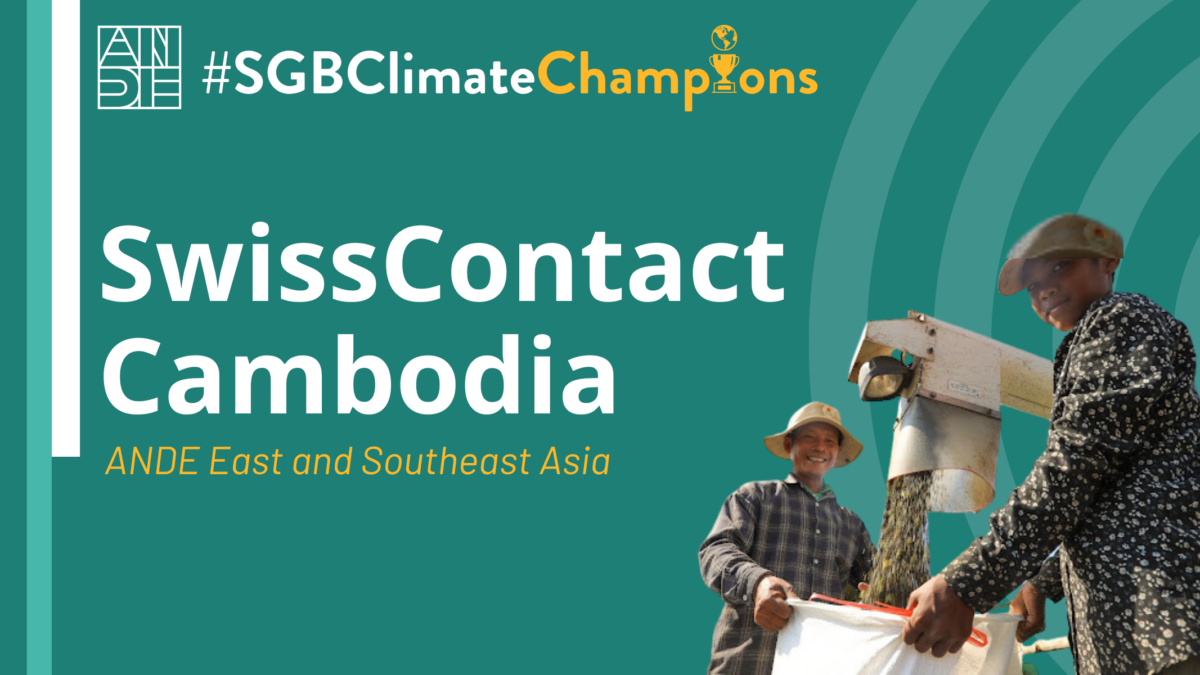
The Innovation for Sustainable Agriculture (ISA) project of Swisscontact Cambodia, focuses on transition mechanisms towards agroecology and regenerative agriculture.
The Happel Foundation, the Symphasis Foundation, and the Leopold Bachmann Foundation, among other donors, finance ISA. Also, as part of the Swisscontact Development Programme, the project is co-financed by Swiss Agency for Development and Cooperation (SDC), and Federal Department of Foreign Affairs (FDFA).
What are your key goals and mission?
Climate Change is affecting lives around the world and is increasingly impacting global food security. Agriculture is one of the major contributors to global climate change. However, in recent years, partly because of agroecology and regenerative agricultural practices, it is also becoming a part of the solution.
Regenerative Agriculture through agroecology practices describe farming and grazing practices that, among other benefits, help mitigate climate change by rebuilding soil organic matter and restoring degraded soil biodiversity, resulting in both carbon drawdown. The practices also help farmers become more resilient to climate change through minimum mechanical soil disturbance. (i.e., no tillage), direct seed and/or fertilizer placement, implementing permanent soil organic cover with crop residues and/or cover crops and species diversification. However, these practices have been mainly researched in scientific circles and implemented in research pilot plots but are now slowly gaining momentum on the farm plots. Therefore, there is now a need to promote, replicate and commercialize the results of the research.
Therefore, to facilitate this transition, Swisscontact’s ISA project is working closely and in partnership with Centre de coopération internationale en recherche agronomique pour le développement (CIRAD), Center of Excellence on Sustainable Agricultural Intensification and Nutrition, Royal University of Agriculture, Kansas State University on a systemic approach to Regenerative Agriculture that includes six systems, dubbed as the Rectangular Agroecology Systematic Approach in Cambodia. This systemic approach is being led by the Cambodia Conservation Agriculture and Sustainable Intensification Consortium (CASIC), a government national mechanism that collaborates and coordinates with a network of organizations that are implementing activities related to Conservation Agriculture (CA) under the Ministry of Agriculture, Forestry and Fisheries.
To that end, one of the components supported by ISA is to address the accessibility and affordability of viable cover crop seeds and to enable smallholder farmers to produce cover crop seeds.

The description of the six systems:
-
- Research Center of Excellence: To promote Research for Development (R4D) on agroecology practices, strengthen research and agroecology skills, and improve R4D infrastructure and capacity with the objective to accelerate the transition to Regenerative Agriculture, the Bos Khnor Conservation Agriculture Research for Development Centre (CARDEC) will need to function as the Centre of Excellence for Research for Development (R4D) in the agroecology. A 5-year strategic roadmap of the Bos Khnor Center has been finalized in 2022 with the support of CIRAD and Swisscontact. The roadmap is the property of the Department of Agriculture Land Resources Management (DALRM)
- Skills and Human Resources: To develop skills and human resources in Regenerative Agriculture, the InGuider Model was developed in 2019, and it serves as an education and apprenticeship platform connecting higher education and private sectors in the field of Agroecology. The InGuider model is taken up at the career center at the Royal University of Agriculture (RUA). The InGuider model was developed by the Faculty of Agriculture Engineering (FAE) within RUA and Swisscontact to work specifically with university students in the agriculture sector to equip and empower them with relevant skills, by providing them with quality hands-on training via internships. The essence of the InGuider model lies in (1) the structured and centralized approach of the program (i.e., the faculty provide support in pre-selecting the companies rather than the students finding companies on their own, if required), (2) the pre-internship training for students and (3) close supervision of the students by a faculty supervisor throughout the internship period.
- Extension: To provide technical information and know how to facilitate the adoption of regenerative agriculture, “MetKasekor’’ (meaning farmers’ friend in Khmer), an initiative of the Government of Cambodia, led by the Department of Extension Agriculture Forestry and Fisheries (DEAFF) functions as an early adopter led extension service model, which focuses on ’opening the market’ for private sector investments on Sustainable Intensification via government agents and the private sector to smallholder farmers in Cambodia. MetKasekor is in the second year of its four year pilot. The pilot is supported by the Center of Excellence Sustainable Agricultural Intensification (CESAIN), Kansas State University, French Agricultural Research Centre for International Development (CIRAD) and Swisscontact through the ISA project.
- Technologies and Practices: KropouchKasekor, SevaKasekor and SRP To strengthen the commercialization of technologies and practices related to Regenerative Agriculture, three initiatives: Sevakasekor under the Department of Engineering (designed to address the accessibility, and affordability of agricultural machinery, and to promote regenerative agriculture machinery), KropuchKasekor, under the Department of Crop Seeds (designed to address the accessibility, affordability of viable cover crop seeds) have been initiated in 2022; and the Cambodia Chapter of the Sustainable Rice Platform (SRP) (designed to help smallholder farmers gain better access to the market via a brand) under the General Directorate of Agriculture and Cambodian Rice Federation was established in December 2022.
- Transition Financing: To address the challenges of incentivizing farmers to change their practices and ultimately facilitating the transition towards Regenerative Agriculture, Dei Meas (Golden Soil) has been designed to function as a financial mechanism to reward farmers for transitioning into Regenerative Agriculture. Therefore, within the framework of the project “Agroecology and Safe food System Transitions in South-East Asia” (ASSET, FFEM), SmartAgro, CIRAD and Swisscontact are currently working on a 3-year pilot of DeiMeasThe model focuses on supporting smallholder farmers to adopt agroecology practices that lead to climate change mitigation (carbon sequestration in the soil, reduced greenhouse gas emissions) and adaption, as well as preserving biodiversity and ecosystem services. The measurable impacts of farmers’ transition shall be quantified with a monitoring, reporting, and verification (MRV) system, using a selection of innovative technologies (remote-sensing, mid-infrared spectroscopy, models), calibrated to the Cambodian conditions. The verification and certification of these measurable impacts could then be packaged and sold on a variety of carbon markets. DeiMeas will be under the steering of the Department of Agricultural Land Resources Management (DALRM).
6. Conservation Agriculture and Sustainable Intensification Consortium: To strengthen coordination and support stakeholders to promote Regenerative Agriculture, the Conservation Agriculture and Sustainable Intensification Consortium (CASIC) was established by the Ministry of Agriculture, Forestry and Fisheries (MAFF) through a decision letter from the Minister in June 2020. CASIC functions as a national coordination mechanism to support the collaboration and coordination among the network of organizations that are implementing activities related to Conservation Agriculture (CA) in Cambodia. The members are part of one of the four sub-committees, namely (1) Knowledge Management, (2) Coordination and Networking, (3) Promotion, and (4) Research for Development (R4D). Each of the sub-committees is led by different government institutions and co-led/supported by either a private sector or development organization. Each sub-committee has specific roles and responsibilities. CASIC serves and supports the members of its sub-committees and does not implement any activities under the functions and authorities of its members.
Why do Entrepreneurship Support Organizations (ESOs) and Small and Growing Businesses (SGBs) play an important role in combating climate change?
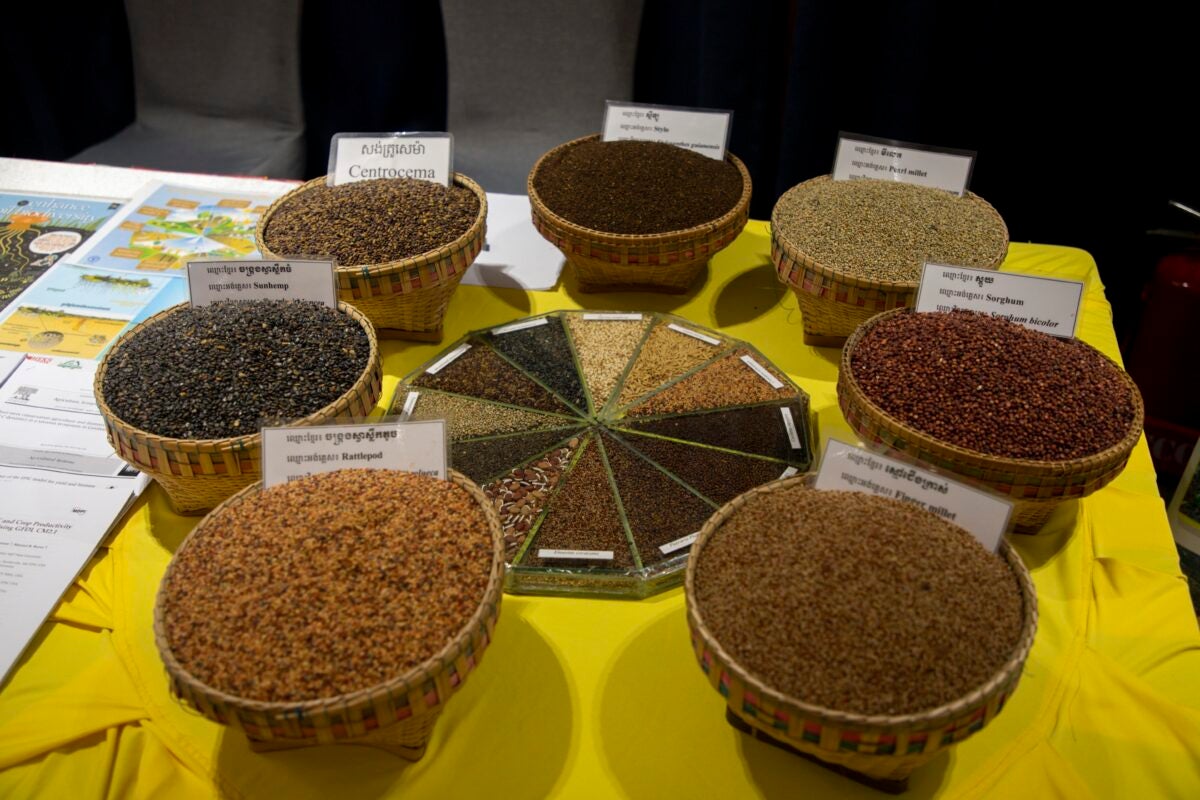
Small and Growing Businesses (SGBs) are often the backbone of the economy. Furthermore, Entrepreneur Support Organizations (ESOs) and SGBs are important actors in combating climate change because to address climate change, decarbonization efforts at all levels are needed. The role of SGBs and ESOs are particularly relevant for climate adaptation, especially in developing countries as they have the power to make a difference at the grassroot level.
Heeding this, the Innovation for Sustainable Agriculture, along with its partners works with SGB’s such as Smart Agro, a company based in Cambodia, to promote regenerative farming and offer large varieties of cover crop seeds. The project also collaborates with Agricultural Cooperatives (ACs) who work with local farmers, to produce cover crop seeds. The ACs then sell the cover crop seeds. Furthermore, the project works with ESO’s like Agricultural and Rural Development Bank and Chamroeun Microfinance Plc. to provide loans for regenerative farming as well as with the Provincial Department of Agriculture, Forestry and Fisheries (PDAFF) who not only coordinate the work between seed producers and agriculture cooperatives, but also provide training to seed producers on production and post-harvesting, provide consultations to agriculture cooperatives on branding, marketing, and sales of cover crops.
What has been your biggest challenge and what did you learn from this experience?
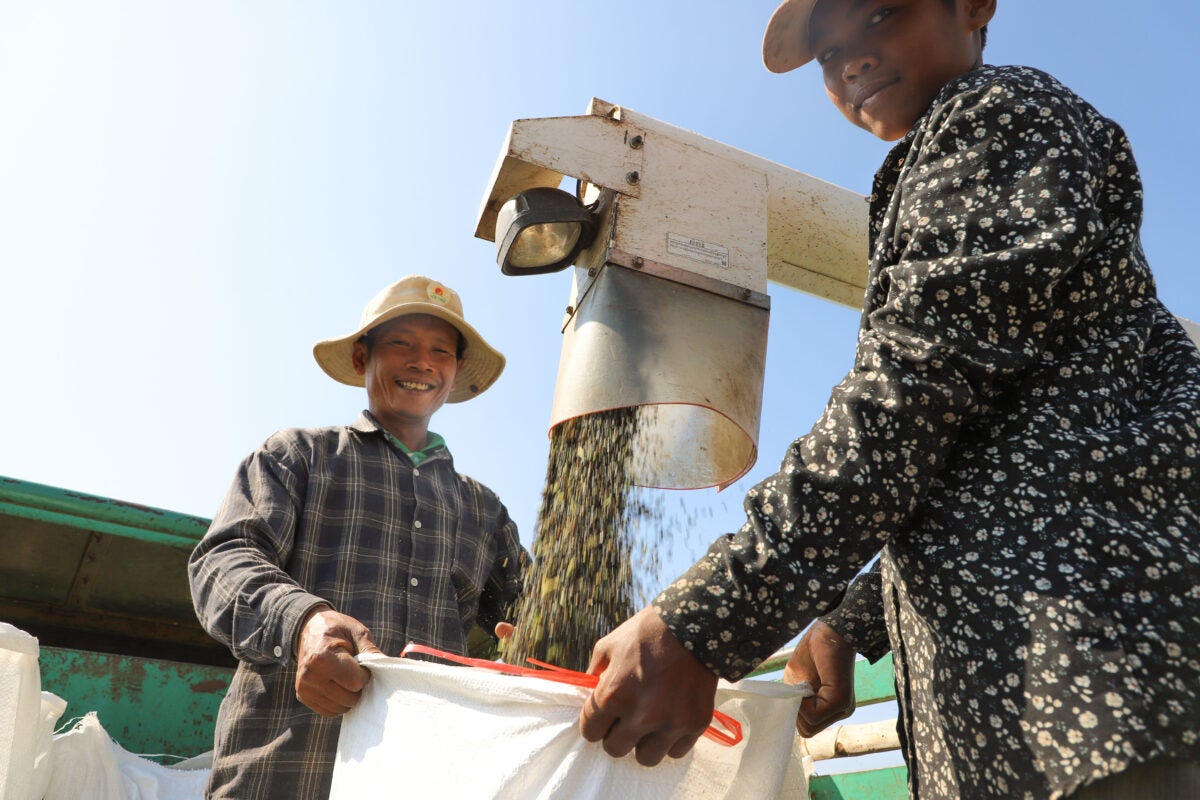
One of the biggest challenges from this experience was ensuring the affordability and accessibility of cover crops for small holder farmers. As the cover crop market lacks competition, the costs of cover crop seeds were high, and therefore, a major bottleneck to convince small holder farmers to invest.
As an alternative solution, ISA and its partners started working with the Provincial Department of Agriculture Forestry and Fisheries (PDAFF) to train farmers who had previously used cover crops and were convinced of its benefits, to become cover crop seed producers. The seed producers were then connected to agriculture cooperatives (AC) who would function as distributors of the cover crops. Pilots turning ACs into SGBs to produce and sell cover crops is also underway. Additionally, the KropouchKasekor facility would support ACs and others who are interested in the cover crop business, as a Government support in this sector. Another big challenge was that the cover crops are not yet registered in the country and the regulations relate to mainly food crops, the registration of cover crops has been a challenge.
As the cover crop market is still nascent, it is early to confirm that the lower prices would result in more uptake. However, looking at the current trend, ISA does see positive response from the field, and does believe that with Agriculture Cooperatives and local producers, the cover crop seed prices would go down and farmers would be more likely to be convinced in the use of cover crops. KropouchKasekor would further help by providing the right initial incentives to ‘’kick-start’’ the market of cover crops.
What was most successful in overcoming that challenge that might be useful for others going through similar challenges?
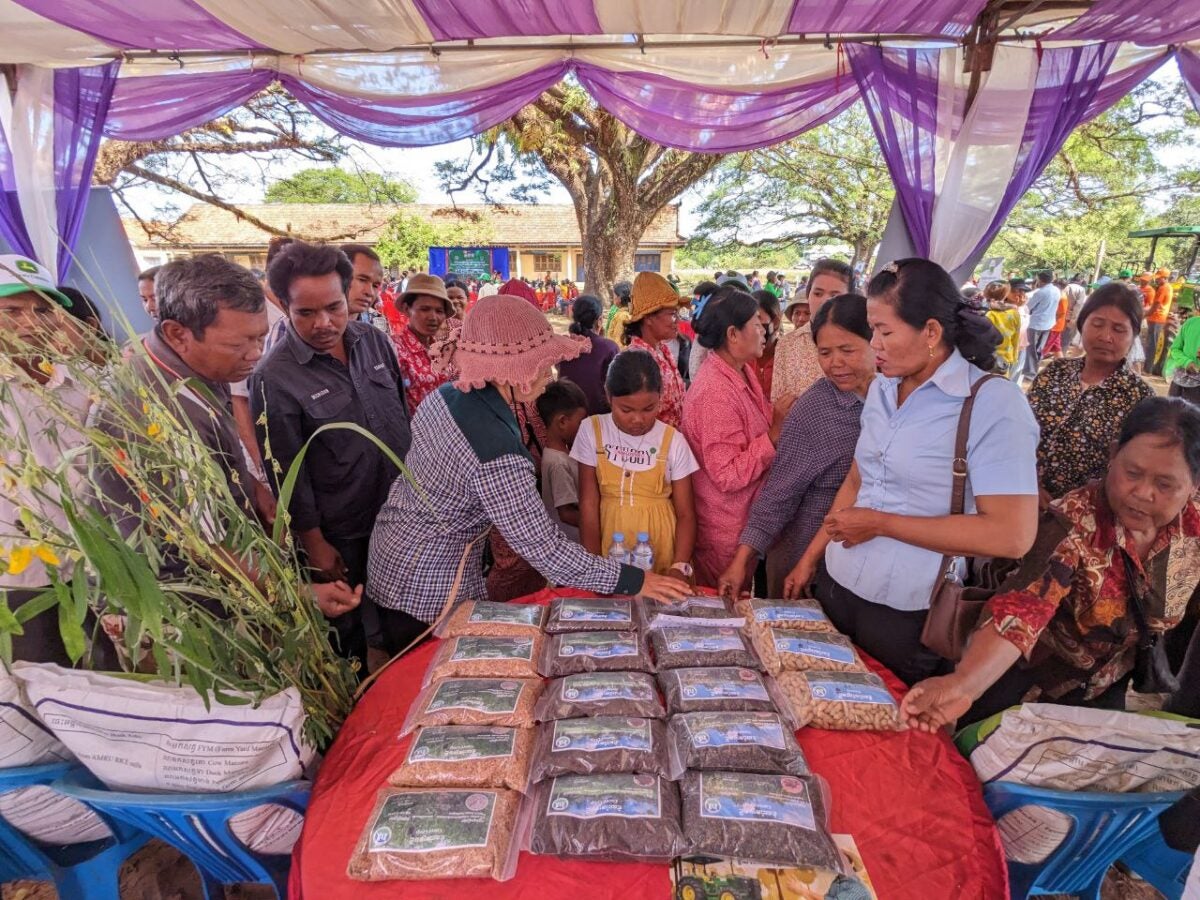
One crucial step taken to overcome the challenge was stimulating the cover crop market by training farmers to become cover crop seed producers and working with agriculture cooperatives in the provinces to add the cover crop business as one of the business activities. Furthermore, having a Government led facility (with support from the private sector) would help in promoting the new cooperatives or other SGBs to start the much needed cover crop business.
Through this approach, the project expects the cost of cover crop seed to decrease ensuring affordability to small holder farmers, and with agriculture cooperatives getting into the cover crop business would ensure accessibility of the cover crop seeds. Because of this, more small holder farmers would be willing to experiment with cover crop seeds, see the benefit of cover crops and contribute to the transition away from conventional farming.
What resources would you recommend for others interested in climate work?
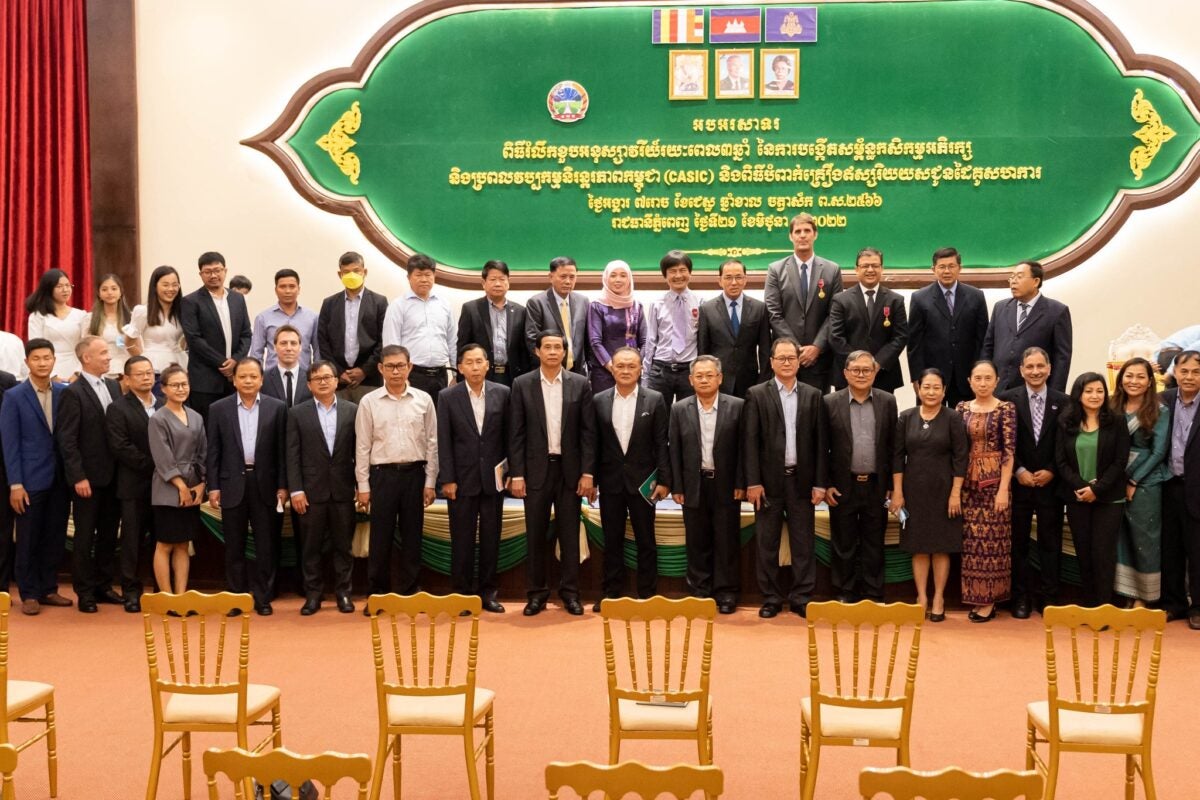
Some of the resources that Swisscontact Cambodia would recommend to anyone interested in climate work in Cambodia would be the Bos Khnor Conservation Agriculture Research for Development Centre (CARDEC) and its 5-year Roadmap, the Cambodia Conservation Agriculture and Sustainable Intensification Consortium (CASIC) and its 5-year roadmap to understand the trajectory of CA in Cambodia. Other resources that interested stakeholders could reach out to, to build networks and connections in agroecology would be CASIC, the National Chapter of Sustainable Rice Platform (SRP) and the Agroecology in Southeast Asia (ASEA) network.
You can learn more about the work of Innovation for Sustainable Agriculture and how the organization is contributing to the agriculture sector through a systemic approach by visiting the ISA Institutionalization website.
Follow them on Facebook, LinkedIn and their Website.
#SGBClimateChampions is a global ANDE campaign that aims to share the stories and experiences of our members across ANDE’s network. These will highlight successful climate business models, showcase the importance of integrating climate across the ecosystem, and to share knowledge and know-how on how SGBs and ESOs can incorporate climate lenses into their work.
